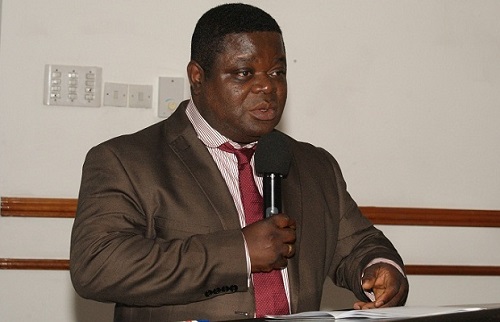- Revenue generation
- Bringing public debt down
- Private sector growth
By Obed Attah YEBOAH
As the country anxiously awaits the Electoral Commission’s announcement of the nation’s president for the next four years, a seasoned economist at the University of Ghana, Professor Peter Quartey, has advised that whoever becomes the leader should focus on stabilising the economy, improving domestic revenue mobilisation, reducing the debt level, and ensuring private sector growth.
Current projections by government put GDP growth at the end of the year at 1.9 percent against a pre-pandemic target of 6.8 percent; public debt is now 71 percent of GDP and projected to hit 77 percent by end of the year; and the private sector is still reeling under pressure from the pandemic, as many businesses have not recovered their losses.
Due to the pandemic’s impact on productive sectors of the economy, total revenue and grants have been revised to 13.9 percent of GDP in 2020 – representing a 20-percentage point decrease over the original 2020 budget target.
It is against this background that Prof. Quartey is urging whichever party wins this year’s general elections to make these four areas a priority if the economy is to see growth better than that recorded before emergence of the pandemic.
“Fixing the macroeconomy is very critical. Even though growth numbers are picking up, we need to grow back to the pre-COVID era. So, the next government should focus on what can be done to revive the GDP growth agenda. Agriculture and industry should be among the focal areas. We must revive the private sector by ensuring that the cost of doing business is relatively low or reasonable. That is very critical.
“And then, issues about our revenue should be given attention. This is no time to increase taxes. The next government should look at how tax collection can be made efficient. How do you rope-in the informal sector? For example, if you take a tax like Property Rates I don’t think we are getting much from that sector, and it all boils down to digitisation. If we can digitise our revenue collection as much as possible, and reduce the human interface, that will help shore-up revenue,” he said in an interview with the B&FT.
He added: “And we also have issues with debt to GDP. I think we have reached the threshold now. In as much as we are not in normal times and it is not uncommon to have a high debt to GDP ratio, our debt to GDP ratio is still high. This is where the revenue generation comes in; we should raise more revenue and gradually reduce how much we owe. Debt to GDP is also a ratio; so when you grow the economy, your GDP will grow and the ratio will come down to sustainable levels.
“The monetary sector is also key. We should continue to pursue lower interest rates, price stability, stable exchange rate and inflation. So, whichever government comes to power must focus on ensuring macroeconomic stability and then promote private sector businesses to revive the economy.”










